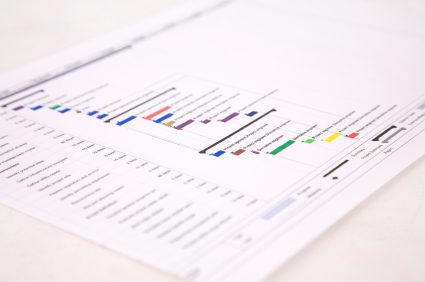The APM PMQ qualification is rapidly growing in popularity, and in combination with the Prince2 qualification is said to give project managers the complete package of skills required to be excellent project managers. The key difference between the two qualifications is that whilst Prince2 teaches ‘hard skills’ such as methodology, frameworks, planning tools and software tools for project management, part of the APM PMQ course (previously know as the APMP) focuses on the ‘soft skills’ that project managers also need if they are to do an outstanding job.
‘Soft skills’ are frequently the subject of debate in the project management world, with many claiming they are too ‘woolly’ and undefinable to really be a quality in a project manager. Others say they are critical to the success of a project. Whether you believe soft skills can be measured or not, there is no doubt that some are absolutely vital to a project management professional.
Vital soft skills for project managers
1. Communication
Your job is all about communication. You communicate with your team, you communicate with your stakeholders, you communicate with your managers and you communicate with your contractors. Everything that happens in the project can become a success or failure dependent on the quality and consistency of the communication channels.
Giving out clear instructions is only part of great communication skills. A good project manager will have as many skills in listening as they will in speaking, and that means really listening to what people are saying, not just nodding in agreement whilst privately planning to do it your way instead.
To develop excellence in communication, project managers need to create a continuous communication loop. Summarising what you have been told, or what you are saying, as well as asking for feedback and constructive comment keeps the loop alive, and ensures everyone is on track with the current project plans.
2. Leadership and people management
To be a great leader, project managers need to be able to lead both the group and the individual. This means being able to manage a range of personalities in effective and fluid ways, as well as being able to motivate and enthuse the whole group towards achieving success.
Like the captain of a ship, you should lead from the front. This means practicing what you preach, and if everyone is working late to meet a tight deadline on a deliverable, you should be there too. Act with fairness and transparency, even if it sometimes makes you unpopular.
3. Negotiation
Being able to negotiate effectively is all part and parcel of the PM’s job. Negotiating contracts and changes in orders with clients is one obvious way this soft skill is used, but there are many more as well. Team members may need to be negotiated with if they aren’t satisfied with their allocated task. The PM may need to negotiate with their managers to make additional resources available for the project. Any experienced project manager will spend a great deal of their day negotiating various things, probably far more than they realise.
Wrapped up with being a great negotiator, is also being a great influencer. This means being able to influence people within your own organisation and others to help achieve goals or release information that will help you on your way.
There are many more soft skills that project managers can learn as part of the APM PMQ course, all of which will help you to become a better and more rounded PM.



